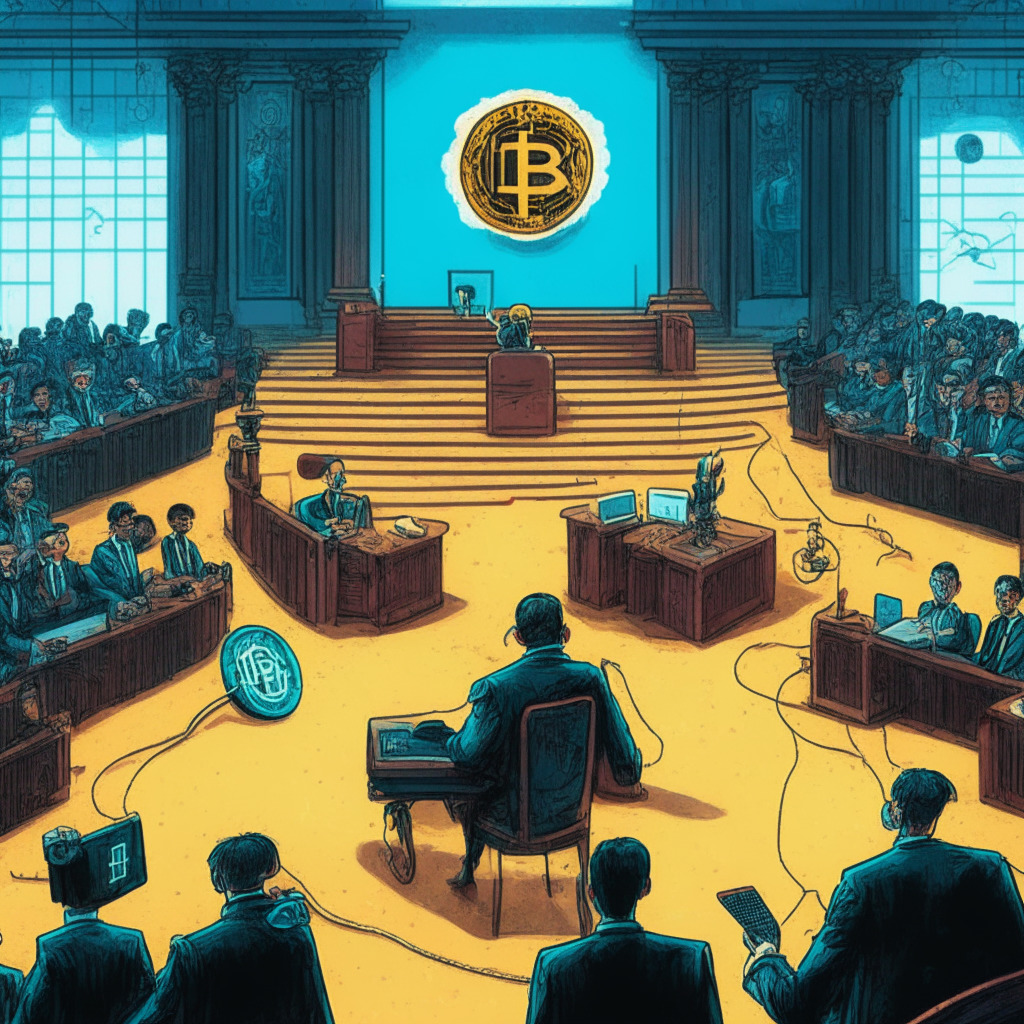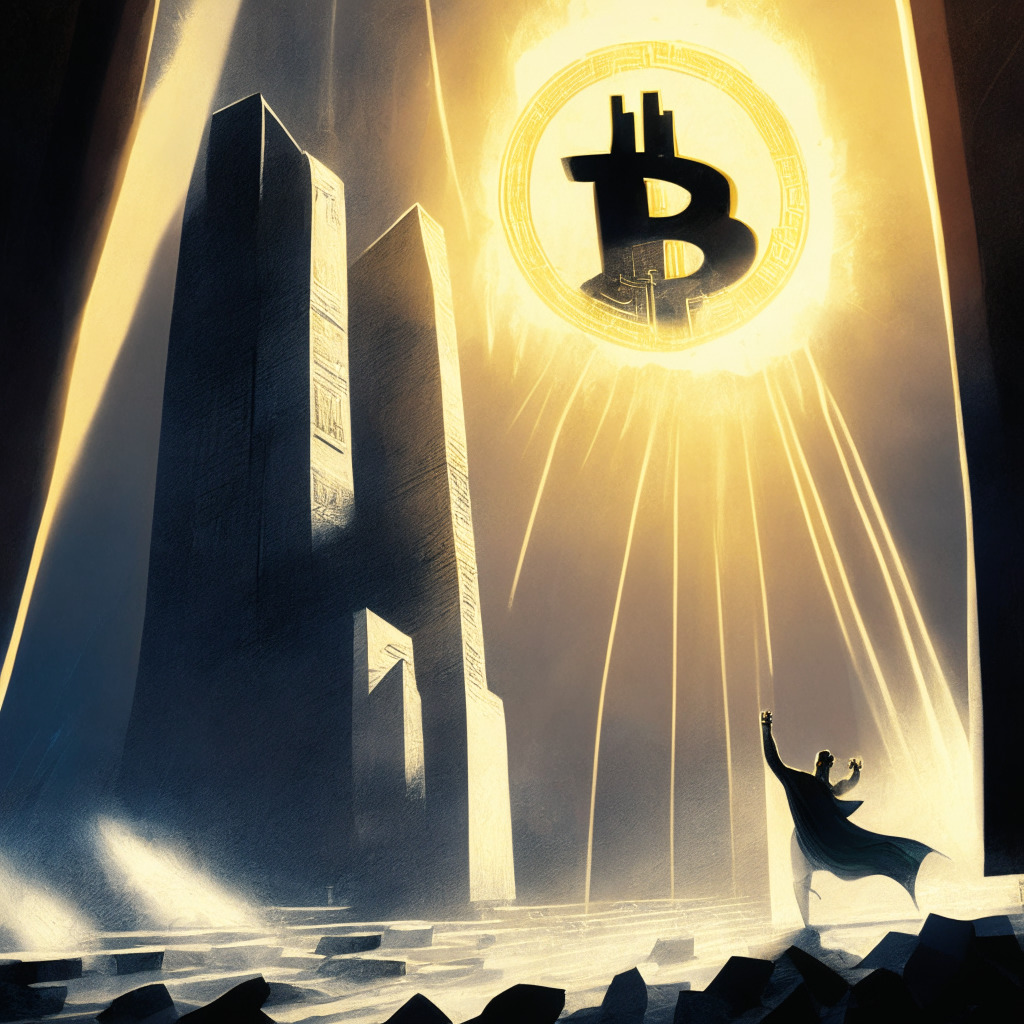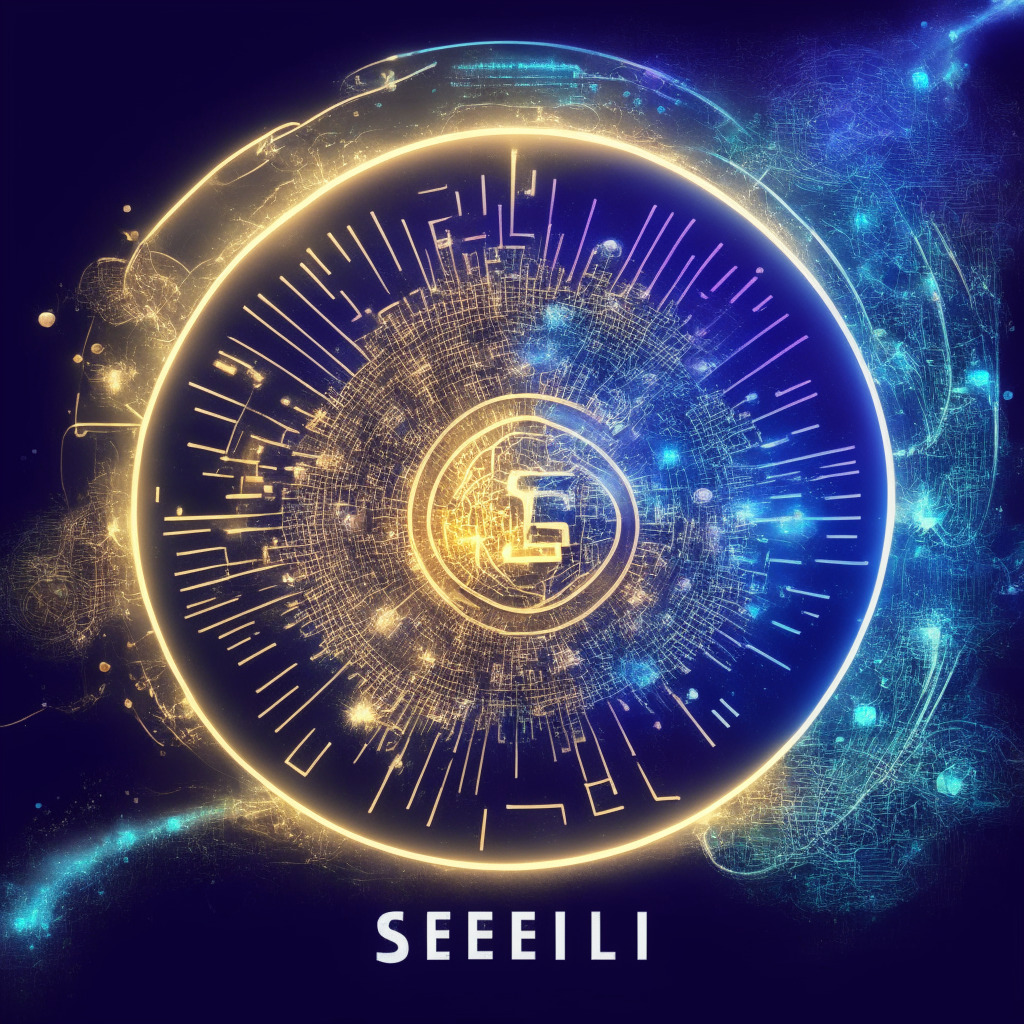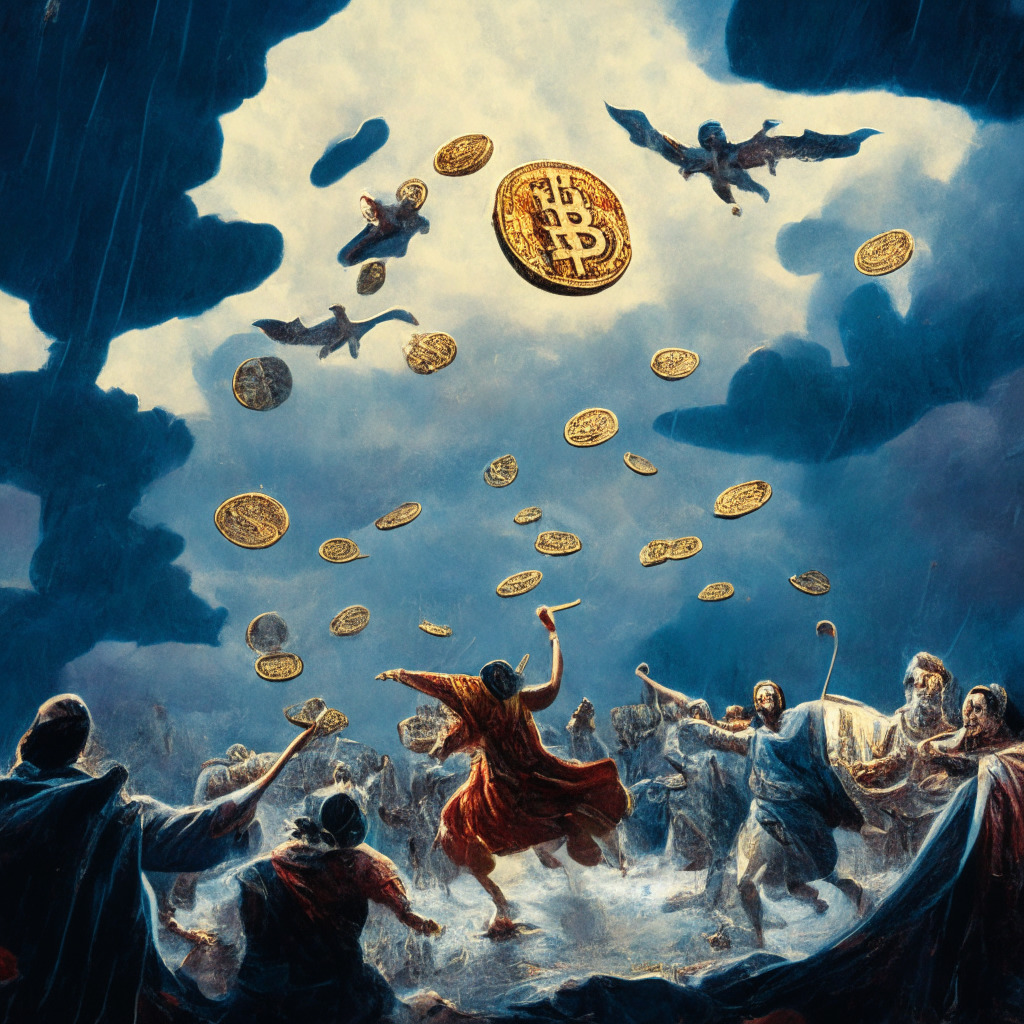“Bitcoin’s sudden recovery to approximately $26,000 raises questions about the influence of major exchanges. However, without strong bullish catalysts, this resurgence may face resistance. Fears of an altcoin crash emerge as FTX exchange plans to offload an estimated $3.4 billion in altcoins, hinting at a bearish market for this crypto category.”
Search Results for: ByBit
Exploring Tamadoge’s Strategic Token Burn Scheme and its Impact on $TAMA’s Value
Web3 games platform Tamadoge initiates a burn program to enhance the scarcity and value of its $TAMA token, aiming to curb circulating supply. The program employs three methods: Mega Burns, Community Burns, and Platform Revenue Burns, and is accompanied by promotional events. The company also introduced token staking with a pool of two million $TAMA tokens as rewards. They’re also focusing on building brand awareness while retaining their gaming user acquisition strategy.
GHOSTDAG Protocol’s Kaspa Surge and the Emergence of Launchpad XYZ: A Dual Crypto Roadmap to Follow
“The recent performance of ‘GHOSTDAG’ protocol, Kaspa (KAS), showcased a +16% rise, highlighting its proof-of-work layer-1 blockchain and ‘GHOSTDAG’ tech. Meanwhile, AI analytics tool, Launchpad XYZ, is capturing attention with its portfolio enhancement promises, offering easier Web 3.0 access.”
Crypto Market Contraction: The Fall in Spot and Derivatives Trading Volume Unveiled
“August saw an 11.5% contraction in the combined crypto spot and derivatives trading volume to $2.09 trillion, indicating a market largely driven by speculation. Spot market activity fell to its lowest level since March 2019, further confirming these concerns.”
Navigating the AI Wave in Crypto Trading: The Rise of ChatBots and User Trust Issues
“Cryptocurrency exchange Bybit recently introduced ‘TradeGPT’, an artificial intelligence (AI) trading assistant that provides insights using platform market data. The tool utilizes both the ChatGPT language model and Bybit’s ToolsGPT for real-time market analysis and user Q&A assistance, intending to educate users in the complex crypto-sphere.”
The Surging Interest in CYBER: Market Trends and The Risks Involved
The crypto token CYBER, created by CyberConnect for use in a Web3 social network, has recently garnered significant interest, causing its value to increase exponentially. However, this presents a considerable risk, echoed by the transient lifespan of similar market upswings in the bearish crypto ecosystem. Traders are paying up to 2000% annualized in fees to buy CYBER on margin, demonstrating the potentially volatile nature of such investments.
Chicago Mercantile Exchange’s Growing Influence on Bitcoin Futures: Promising or Overrated?
“Chicago Mercantile Exchange (CME) has played a key role in the Bitcoin futures market, amassing an impressive $5.45 billion open interest by October 2021. However, despite this surge, its pricing dynamics and volumes differ significantly from other crypto exchanges, making its position somewhat skewed when reflecting the overall crypto market. These differences also impact CME’s pricing, hindering its ability to accurately mirror Bitcoin’s price movements on other exchanges.”
Binance Quietly Removes Banco de Venezuela: Blockchain Freedom Versus Economic Sanctions
Cryptocurrency exchange Binance has silently removed Banco de Venezuela from its P2P service list, mirroring U.S Treasury-imposed financial sanctions. The move raises concerns among Venezuelan crypto enthusiasts, notably because the bank plays a crucial role in Venezuela’s digital currency ecosystem. Despite the silent removal, users can reportedly circumnavigate the ban due to the P2P nature of the services.
Binance’s Existential Crisis: Will the Crypto Giant Exit Russia Amidst Growing Legal Woes?
“Binance, the leading crypto exchange, is considering an absolute exit from Russia amid increasing Western sanctions. This comes after allegations of enabling transactions related to sanctioned Russian banks, escalating global legal issues, and potential indictments for possible infringement of anti-money laundering laws.”
Decentralization Versus Sanctioned Russian Banks: The P2P Dilemma in Crypto Exchanges
Crypto exchanges including OKX and Bybit have delisted Russian banks Tinkoff and Sberbank, due to Western sanctions following the Ukraine invasion. Despite this, the decentralized nature of P2P transactions makes complete enforcement challenging. The delistings highlight the growing reliance on cryptocurrencies amid Russia’s economic instability due to these sanctions.
Unravelling the Blockchain Future: Justice, Global Sanctions, Charity Initiatives, Twitter Vulnerability, and Investment Trends
“In the face of persistent complications, the future of blockchain teeters precariously between pathbreaking transformation and a potential bubble. Blockchain’s breathtaking scope and opportunities invariably throw up a set of challenges for us to navigate. Our choices shape the blockchain of tomorrow.”
Removing Sanctioned Russian Banks from Crypto Exchanges: A Double-Edged Sword for Global Compliance
Crypto exchanges OKX and ByBit have excluded sanctioned Russian banks, including Tinkoff Bank and Sberbank, from their payment options. Despite their removal, private transactions through these banks continue. The development highlights the friction between user services and adhering to international financial regulations in the crypto industry.
Funding Success and Regulatory Hurdles: The Rise and Tribulations of Crypto in Dubai
“Dubai-based cryptocurrency exchange BitOasis has garnered substantial investor funding, particularly from Indian digital-asset platform CoinDCX. Despite challenges, it remains a key market player in the Middle East and North African regions, amidst notable growth in the crypto sector. Dubai continues to emerge globally as a leading crypto hub, necessitating increased regulatory oversight.”
Unraveling PEPE Meme Coin Chaos: Impact of Change in Transaction Approval Norms
“An influx of 16 trillion PEPE meme coin tokens streamed out from the project’s multisig wallet, tied to Binance, OXK, and Bybit. This was followed by a change in the wallet’s transaction approval process, reducing from needing five out of eight approvals to just two. The shift prompts security concerns and discussions about system safety in the crypto community.”
Coinbase Halts Trading of Stablecoins Amid Tough Crypto Regulations in Canada
Coinbase, a major cryptocurrency exchange, announces the suspension of trading for three popular stablecoins in Canada starting from August 31. Despite the trading halt, the wallets will still be functional for deposits and withdrawals. However, Canada’s stern stance towards crypto service providers and stringent regulations have led to many crypto exchanges, including Binance and OKEx, pulling out from the Canadian market.
Sudden Upheaval in Bitcoin Perpetual Futures: Analyzing the Volatility and Risk Factors
Bitcoin’s volatility index, DVOL, recently surged, causing a stir as funding rates for Bitcoin perpetual futures dipped globally. According to Griffin Ardern, a volatility trader, this sudden price dip triggered hedging behaviors, catalyzing a deeper decline. These shifts highlight the complexities and inherent risks in crypto markets and crypto futures trading.
Ethereum Rebounds Amid Rumors of SEC’s Possible Ether Futures ETFs Endorsement
Rumors of the SEC possibly endorsing Ether futures ETFs have factored into a recent rebound in the Ethereum price. However, while firms have requested to launch ETFs, there’s no definitive confirmation of approval. Amidst these speculations and dynamic market fluctuations, informed decision-making is key.
Regulatory Clarity in Canada: Boon for Crypto Exchanges or a Bane for Small Platforms?
According to WonderFi CEO Dean Skurka, Canadian financial institutions are showing increased interest in cryptocurrencies due to unfolding regulatory clarity. Despite major exchanges exiting the Canadian market over stringent regulations, Skurka sees it beneficial for WonderFi, leading to increased activity and market consolidation.
Assessing the Potential of Sei Network’s Native Token: A Deep Dive into Its Prospects and Challenges
“The Sei Network’s native token, SEI, made a grand entry with a $1.8 billion fully diluted valuation. Amid market enthusiasm, potential investors are keeping an eye on SEI’s performance. The transaction speed, scalability, and utility of SEI tokens on various platforms could determine its future valuation. Cryptocurrencies like SEI play a significant role in digital economies, and market watchers eagerly await its impact on the dynamic digital paradigm.”
Rising On-Chain Activity Exposes User Experience Flaws in Coinbase App
Brian Armstrong, CEO of Coinbase, has recognized major user experience flaws within the Coinbase app. These issues emerged during the surge in on-chain activities on the layer-2 network, Base, particularly involving NFTs, Dapps, and Layer 2 solutions. Despite significant improvements, Armstrong admits much work remains and welcomes user feedback for prioritized resolution. This revelation underlines the importance of app usability and user experience in the volatile crypto world.
Canada’s Crypto Conundrum: Regulatory Shifts and Coinbase Expansion
“Crypto exchange platform Coinbase expands its services in Canada, in partnership with the Peoples Trust Company. However, other crypto exchanges faced difficulties in the Canadian market due to a tightening regulatory environment set by the Canadian Securities Administrators.”
Bitcoin’s Bullish Surge: Analyzing the Taker Buy-Sell Ratio and Its Role in Crypto Market Rebounds
“Bitcoin’s ‘taker buy-sell ratio’ on crypto exchanges peaked at 1.36 recently, indicating strong bullish sentiment. This suggests that buy volume is exceeding sell volume, a classic sign of bullish trading. Some attribute this to large Bitcoin investors, often termed ‘whales’, increasing their buying volume.”
Bitcoin’s Quest for $30K: Regulatory Clarity, Volatility, and an Unforeseen Crypto Market Boom
“Bitcoin shows robust performance despite the volatile cryptocurrency market, outperforming crypto hedge funds. Bybit’s Vivien Fang cites a record low in Bitcoin’s volatility, anticipating a rebound. However, unpredictability remains possible due to macro-related downside events and speculative trading, underscoring the critical role of regulatory clarity.”
Gen Z’s Rising Inclination Toward Crypto-Copy Trading: A Boon or a Bane?
“Nearly half of all crypto-copy traders are below 25 years of age, indicating a significant uptake by Gen Z investors. This shift towards social trading, mirroring the portfolio actions of individuals, can be attributed to younger investors’ tendency to seek advice from social media influencers. Regulation and misinformation pose potential risk for these investors in the digital crypto market.”
Navigating the Crypto Storm: The Double-Edged Sword of Slippage in the Ether Market
“Slippage, the gap between estimated transaction cost and the price actually paid, has been a significant indicator in the ether market. Data shows spikes in slippage signaling trend changes. However, it can also result in traders paying higher than intended, underscoring its dual role.”
Revving Engines and Digital Assets: How NFTs are Making a Pit Stop in Formula One Racing
Crypto exchange, Kraken, is involving their community in decorating the Williams Racing team’s F1 cars using non-fungible tokens (NFTs). This allows enthusiasts to submit NFT decal candidates and involves a vote for the top 4 NFT submissions to feature in the Austin Grand Prix. Critics argue this dilutes sportsmanship and raises environmental concerns.
Binance’s Newly Acquired License: A Stride or Setback in Dubai’s Crypto Sphere?
Binance has secured an Operational Minimum Viable Product license from Dubai’s Virtual Asset Regulatory Authority, enabling it to legally offer crypto-exchange services and virtual asset broker-dealer services. However, these services are currently limited to institutional and qualified retail investors in Dubai.
Crypto Assets: Property or Currency? Unpacking Singapore’s High Court Verdict
“Cryptocurrency value derives from collective human perception, Judge Philip Jeyaretnam stated in a Singapore High Court verdict that equated digital currencies with fiat money. His ruling, recognizing crypto assets as property despite their incorporeal nature, could initiate a sea change in cryptocurrencies’ legal status.”
Riding the Crypto Wave: Gemini’s Leaderboard Contest – Strategic Push or Profit Play?
Gemini, a crypto firm operated by the Winklevoss twins, is introducing leaderboard contests to stimulate trading on its exchange. Critics question if these are genuine attempts to engage crypto enthusiasts or simply tactics to boost trading volume and profits.
Breaking Boundaries: Singapore High Court Draws Crypto Closer to Fiat, Defines it as Property
A recent ruling by Singapore’s High Court likened cryptocurrency to fiat money, declaring it personal property and recognizing its ‘real’ value. The court’s decision contributes to changing regulations around digital assets and helps advance conversations about the credibility and security of investments in blockchain technologies like NFTs. However, challenges, including cybersecurity threats and regulatory conformance issues, could arise.
Legal Spotlight: Singapore’s High Court Endorses Cryptocurrency as Trust-held Property
Singapore’s High Court recently recognized cryptocurrency as a property eligible for trust holding, a result of a case initiated by Bybit against contractor, Ho Kai Xin. Judge Philip Jeyaretnam highlighted that the holder of a crypto asset has an intangible property right, echoing sentiments of a public consultation response by the Monetary Authority of Singapore published in 2023.
Unfurling Crypto Landscape: The Impact of a Potential Bitcoin ETF and DeFi Revival
“Mao Shixing, co-founder and CEO of Cobo, notes the considerable potential influence of traditional institutions applying for a Bitcoin ETF. By Q1 2024, approval for cryptocurrency spot ETFs isn’t unrealistic, potentially reinjecting funds into key assets like Bitcoin and Ethereum.”































